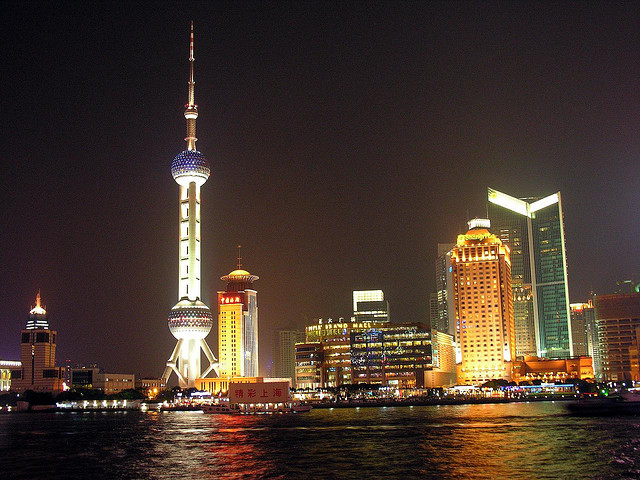
There’s a lot of talk about the Chinese stock market falling. I look at it as an opportunity to talk about why bubbles develop in markets, and why governments don’t take steps to avoid them until it is too late — also, why they try to prop the bubbles up, even though it is hopeless. ?But first an aside:
Three weeks ago, I was interviewed on RT/America Boom/Bust. ?Half of the interview aired — the part on domestic matters. ?The part on Greece and China didn’t air, and what a pity. ?I argued that China today was very much like Japan in the late ’80s, where the Japanese had a hard time investing abroad, and had an expansive monetary policy. ?People had a hard time figuring out where to put their money. ?Savings and fixed income didn’t offer much. ?Real Estate was great if you could afford it. ?The stock market was a place for putting money to work — and it had a lot of momentum behind it.
China has the added complexity of wealth management products which are opaque and many are Ponzi schemes. ?Also, the fixed income markets in China are not as mature as Japan’s markets 30 years ago. ?Both have the difficulties that they are too big for some of the indexes that international investors use.
Another reason for the bubbly behavior was use of margin, both formal and informal, and, the tendency for stock investors to have very short holding periods. ?Short-termism and following momentum is most of what creates bubbles. ?Ben Graham’s voting machine dominates, until the weighing machine takes over, and the voting machine votes the opposite way.
Long term assets like stocks should be financed with equity, or at worst, long-term debt. ?Using a lot of margin debt to finance equity leads to a rocket up, and a rocket down. ?When the amount of equity in the ?account gets too low, more assets have to be added, or stocks will have to be liquidated to protect the margin loan that the broker made. ?When enough stocks in margin accounts are forced to be sold, that can drive stock prices down, leading to a self-reinforcing cycle, until the debt levels normalize at much lower levels. ?This is a part of what happened in the Great Depression in the US.
Now governments never argue with bubbles when they expand, because no one dares to oppose a boom. ?(Note: that article won a small award. Powerpoint presentation here.) ?The powers that be love effortless prosperity, and no one wants to listen to a prophet of doom when the Cabaret is open.
Now, the prosperity is mostly?fake, because all of the borrowing is temporarily pulling future prosperity into the present. ?When the bubble pops, that will revert with a vengeance, leaving behind bad debts.
Despite the increase in debts, and speculative changes in economic behavior, most policymakers will claim that they can’t tell whether a bubble is growing or not. ?Their bread is buttered on the side of political contributions from financial firms.
But when the bubble pops, and things are ugly, governments will try to resist the deflating bubble — favoring relatively well-off asset owners over not-so-well-off taxpayers. ?In China at present, they are closing down markets for stocks (if it doesn’t trade, the price must not be falling). ?They are trying to be more liberal about liquidating margin debt. ?They are limiting share sales by major holders. ?They are postponing IPOs. ?They are inducing institutions to buy stock.
China thinks that it can control and even reverse the deflating bubble. ?I think they are deluded. ?Yes, they are relatively more powerful in their own country than US regulators and policymakers. ?But even if their institutions were big enough to suck up all of the stock at existing prices, it would merely substitute on problem for another: the institutions would be stuck with assets that have?low forward-looking returns. ?If you use those to fund a defined benefit pension plan, you will likely find that you have embedded a loss in the plan that will take years to reveal itself.
As a result, since China is much larger than Greece, its problems get more attention, because they could affect the rest of the world more. ?For Western investors without direct China exposure, I’m not sure how big that will be, but with highly valued markets any increase in volatility could cause temporary indigestion.
The one bit of friendly advice I might offer is don’t be quick to try to catch a falling knife here. ?It might be better to wait. and maybe buy stocks in countries that get unfairly tarred by any panic coming out of China, rather than investing in China itself. ?Remember, margin of safety matters. ?More on that coming in a future post.
